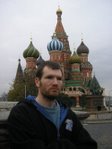One of the main themes of the book is about starting a new life. The main character, inspired by an anecdote in a Raymond Chandler novel*, tries to write a story about a man who is nearly killed in a freak accident, and who then spontaneously abandons his family life in New York in order to start from scratch in a new city. Leaving the house to post some letters, the main character of this story within a story ends up taking a plane to Kansas City to embark on a new and bizarre existence, working in an underground room filled with telephone directories.
Like other Auster books, Oracle Night zips along and is very easy to read, and raises plenty of existential philosophical questions in the reader's mind without ever really pinning anything down. For me, Auster's trademark is the juxtaposition of a set of complex themes about what it means to be human with a straightforwardly written narrative about the day to day activities of a central character. On one hand, his books are very entertaining and earthy, and on the other, it's never quite clear what exactly he is getting at. In the case of Oracle Night, Auster refers to "the power of the random, purely accidental forces that mold our destinies", and the motif of abandoning your life and starting again afresh is an attempt to embrace the randomness of life.

Paul Auster
Auster also writes about writing. Many or most of his protagonists are writers, and I noted one very nice passage in Oracle Night about the process of writing which may evoke feelings familiar to anyone who has searched in vain for inspiration:
"I put down the book and started pacing around the apartment, walking in and out of rooms, scanning the titles of the books on the shelves, parting the curtains and looking through the window at the wet street below, accomplishing nothing for several hours.
Now I'm off to do some reading about Auster online...
* PS: I just learned it's actually Dashiel Hammet rather than Chandler...








